|
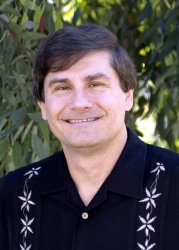  ***
As part of the
14th annual Silicon Valley
Astronomy Lecture Series, on February
26th, astronomer Alex Filippenko,
Ph.D., of UC Berkeley,
discussed Exploding Stars, New
Planets, Black Holes and the Crisis at
Lick Observatory, in the Smithwick
Theatre at Foothill College in
Los Altos Hills. Here
is the lecture
(Youtube). ***
As part of the
14th annual Silicon Valley
Astronomy Lecture Series, on February
26th, astronomer Alex Filippenko,
Ph.D., of UC Berkeley,
discussed Exploding Stars, New
Planets, Black Holes and the Crisis at
Lick Observatory, in the Smithwick
Theatre at Foothill College in
Los Altos Hills. Here
is the lecture
(Youtube).
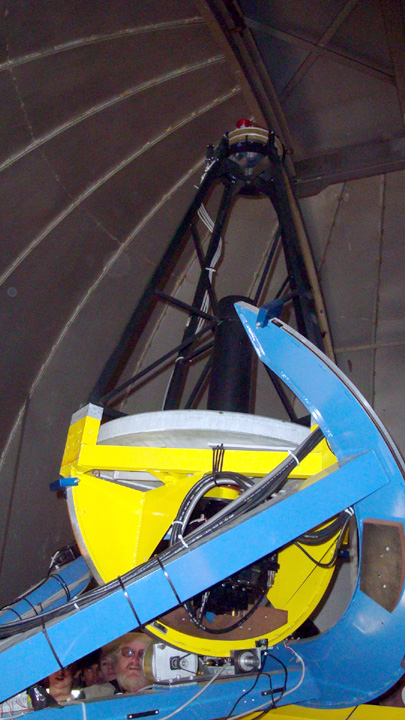 Op-Ed
for the San Jose Mercury News; January 8,
2014 Op-Ed
for the San Jose Mercury News; January 8,
2014
Lick
Observatory: A Vibrant Facility for
Research and Education
by
Alex Filippenko
As
reported in these pages (12/17/13, "Lick
Observatory's astronomy research could
end"), University of California
administrators intend to terminate funding
for Lick Observatory by 2016x2018. We, and
many of our UC astronomy colleagues,
believe that the facilities at Lick
continue to provide invaluable and unique
scientific opportunities for UC, a
marvelous training ground for students,
and an important and very popular venue
for public outreach and education,
attracting 35,000 visitors annually. The
planned curtailment of UC funding, which
has publicly thrown Lick's future into
doubt, reflects a lack of understanding of
the importance of Lick to UC, to
California, and to astronomy as a
whole.
From
its site atop Mt. Hamilton overlooking San
Jose, Lick serves astronomers from eight
UC campuses plus two national
laboratories, and over 100 researchers
ranging from undergraduate students to
professors conduct observations there.
Lick is the only observatory that is fully
under UC's control, allowing it to provide
crucial time and space for developing new
telescopes and technologies. Though no
longer among the world's largest, Lick's
telescopes are very powerful x partly
because generous observing time is
available, enabling UC researchers to
carry out long-term, in-depth studies that
are impossible in the few nights per year
available on giant telescopes elsewhere.
Moreover, students and postdoctoral
scholars can design and conduct their own
projects at Lick, adding immensely to
their scientific development. Lick's
126-year history of conducting forefront
research continues to this day with
vibrant and diverse observing programs.
Highlights of ongoing research include
studies of supernova explosions, which
laid the groundwork for the Nobel
prize-winning discovery of dark energy;
discoveries of numerous planets orbiting
nearby stars using the Doppler technique
that was pioneered at Lick; and
observations of galaxy centers that
provide detailed views of the environments
of super massive black holes. A new
2.4-meter Automated Planet Finder
telescope is a formidable tool for finding
potentially habitable planets around the
nearest stars. Lick also serves as a
proving ground for cutting-edge "adaptive
optics" technology that counteracts
blurring by the Earth's atmosphere. A new
(2014) adaptive optics system includes
numerous technical innovations that will
help to enable next-generation giant
telescopes to produce images 10 times
sharper than those from the Hubble Space
Telescope.
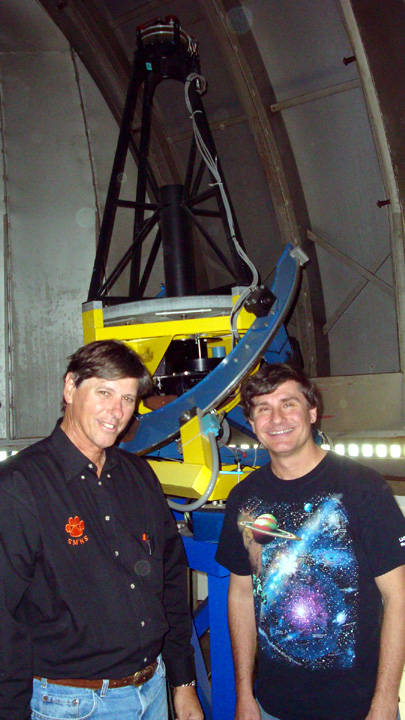 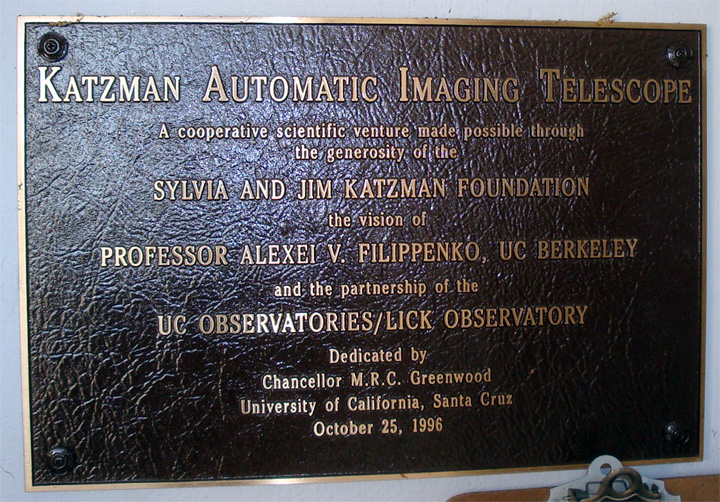  Lick
continues to play a vital role as a
component of UC's suite of astronomical
facilities, together with the twin Keck
10-meter telescopes and the future
Thirty-Meter Telescope. The technologies
used to build state-of-the-art cameras and
spectrographs for these enormous
telescopes need prototyping and testing,
and the observers who use them gain
tremendous benefit from the training and
experience that they obtain at smaller
facilities. Even in the era of giant
telescopes, observatories like Lick still
serve as incubators both for new
astronomical technologies and for the next
generation of scientific
talent. Lick
continues to play a vital role as a
component of UC's suite of astronomical
facilities, together with the twin Keck
10-meter telescopes and the future
Thirty-Meter Telescope. The technologies
used to build state-of-the-art cameras and
spectrographs for these enormous
telescopes need prototyping and testing,
and the observers who use them gain
tremendous benefit from the training and
experience that they obtain at smaller
facilities. Even in the era of giant
telescopes, observatories like Lick still
serve as incubators both for new
astronomical technologies and for the next
generation of scientific
talent.
Why
would such a valuable facility face the
ax? The answer is partly an accident of UC
science funding. The UC Observatories, as
a system-wide resource, depend on
centralized UC funding and appear as a
single budget item whereas other research
is supported by individual campuses. This
makes astronomy highly visible and
vulnerable to cost-cutting at the UC
Office of the President, despite the fact
that it is no more costly to UC as a whole
than other sciences. Lick Observatory
itself is highly cost-effective: less than
10% of UC's system-wide astronomy funds
are used to support Lick, but its
telescopes are used by roughly half of
UC's observers.
What
can interested individuals do? First, urge
UC leadership (http://ucop.edu/president/contact/index.html)
to continue UC's core support for Lick
Observatory. Then consider ways in which
you, or perhaps the organization you work
for, can partner with UC to help preserve
and enhance this distinguished Bay Area
icon, established by a historic bequest
from James Lick in 1876. A group called
the Friends of Lick Observatory has been
formed to build such
partnerships.
Visit
http://www.ucolick.org/SaveLick/
to learn more about Lick programs and how
you can help.
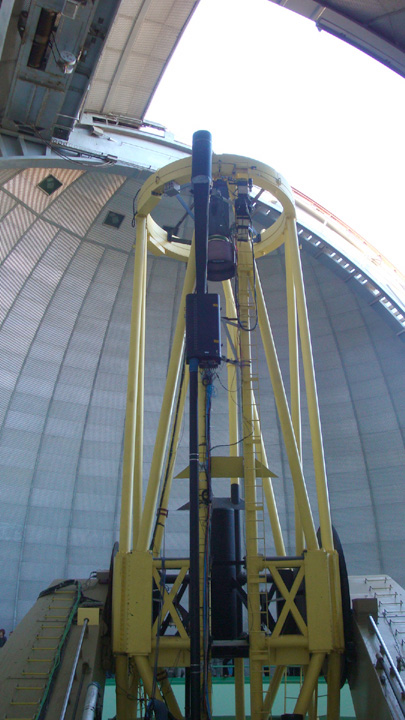  Alexei
V. Filippenko (Professor of Astronomy,
Goldman Chair in the Physical
Sciences, Alexei
V. Filippenko (Professor of Astronomy,
Goldman Chair in the Physical
Sciences,
UC Berkeley)
Claire E. Max (Professor of Astronomy and
Astrophysics, UC Santa Cruz)
Aaron J. Barth (Professor of Physics and
Astronomy, UC Irvine)
Information
for San Jose Mercury News:
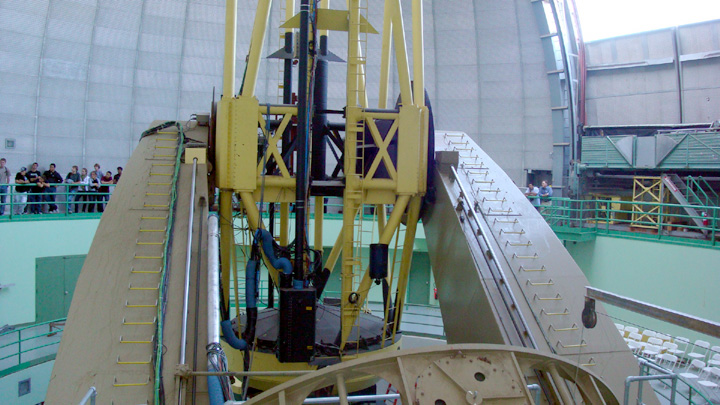 Dr.
Alexei V. Filippenko Dr.
Alexei V. Filippenko
Department of Astronomy
University of California
Berkeley, CA 94720-3411
510-642-5275
alex@astro.berkeley.edu
Dr.
Claire E. Max
UC Observatories
University of California
Santa Cruz, CA 95064
831-459-2049
max@ucolick.org
Dr.
Aaron J. Barth
Department of Physics and Astronomy
University of California, Irvine
Irvine, CA 92697
949-824-3013
barth@uci.edu
|